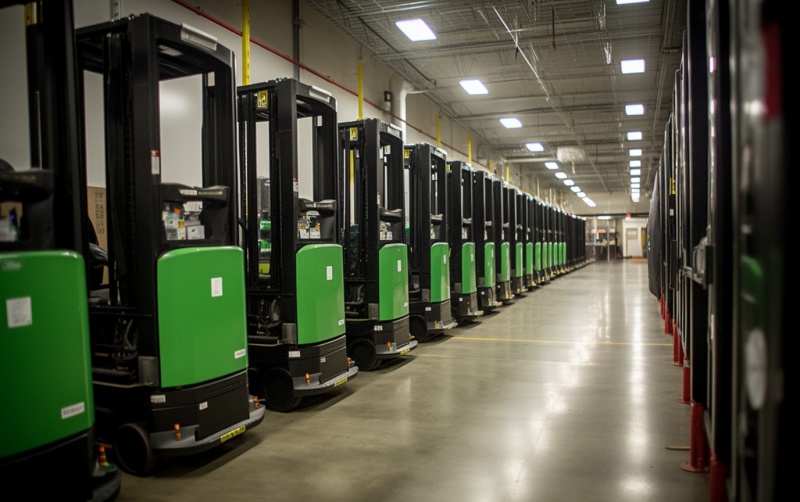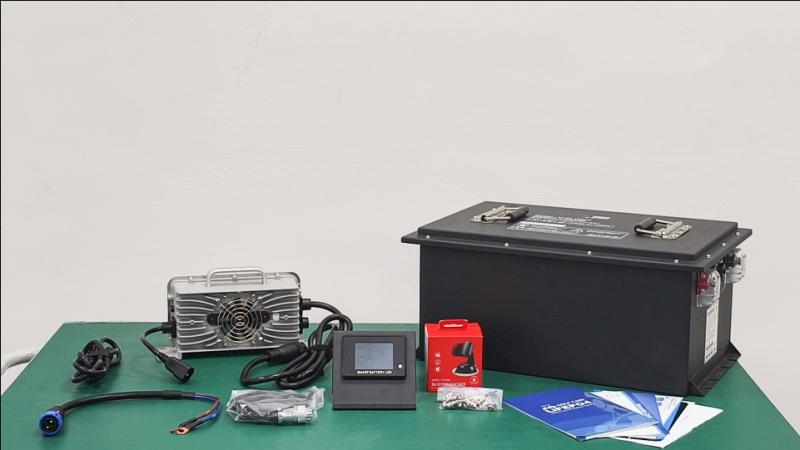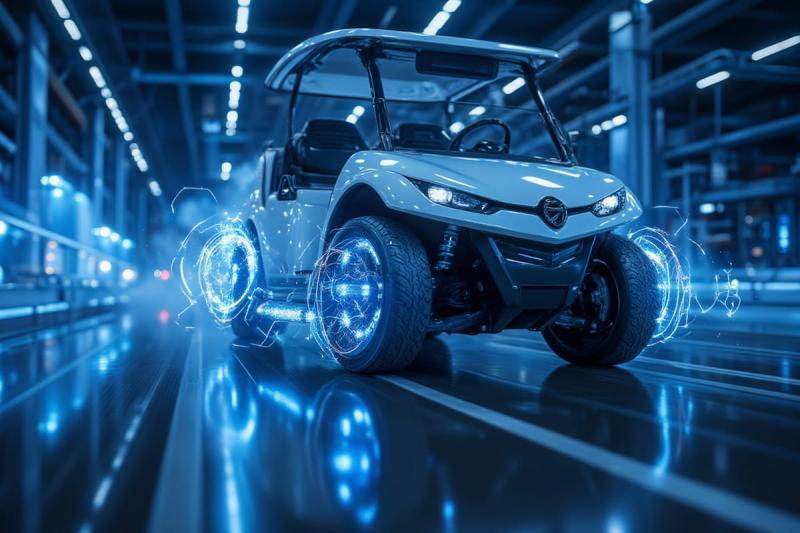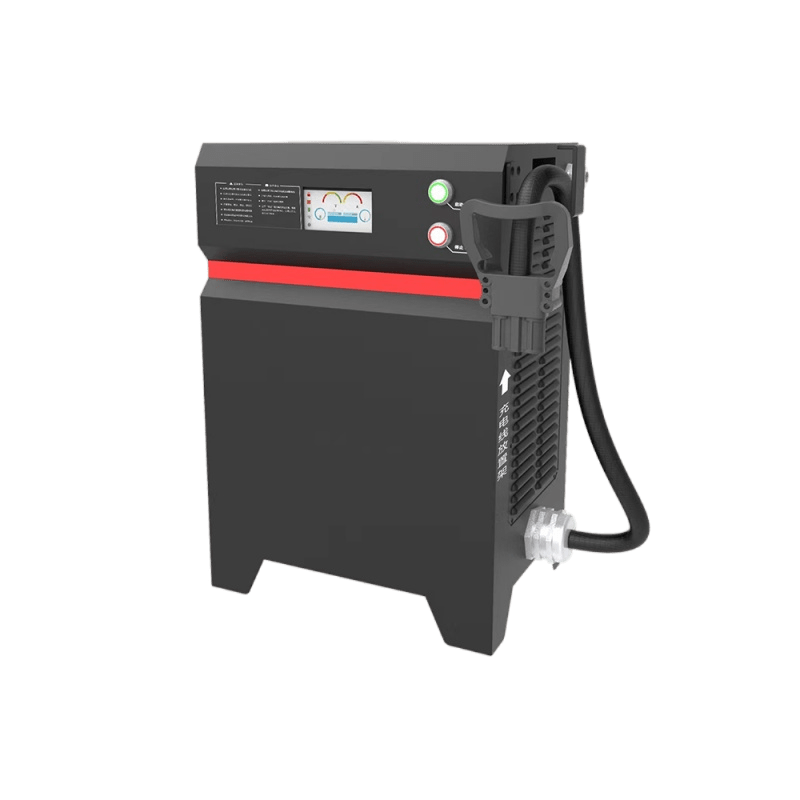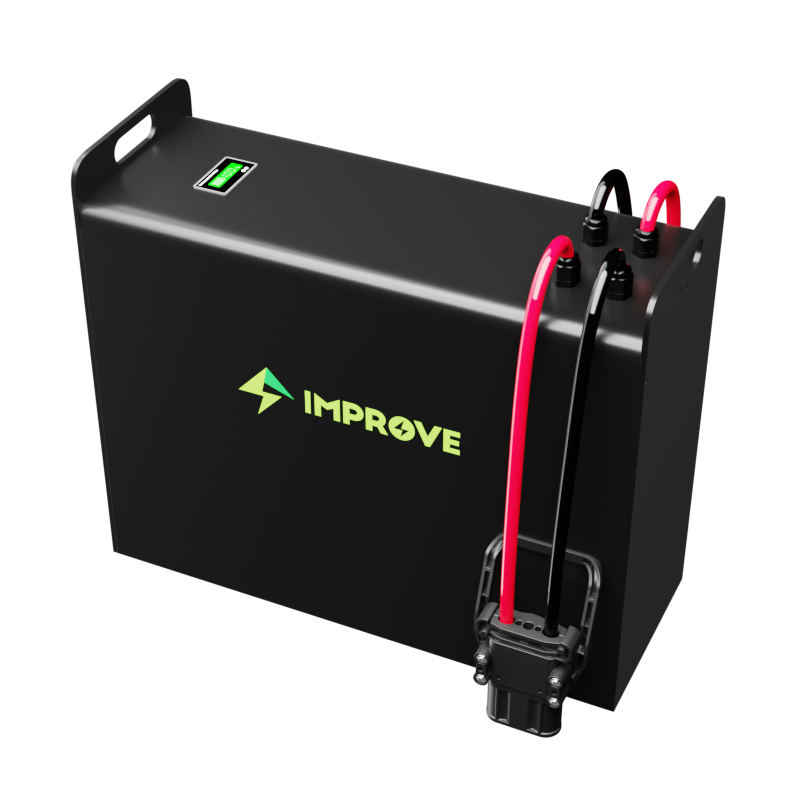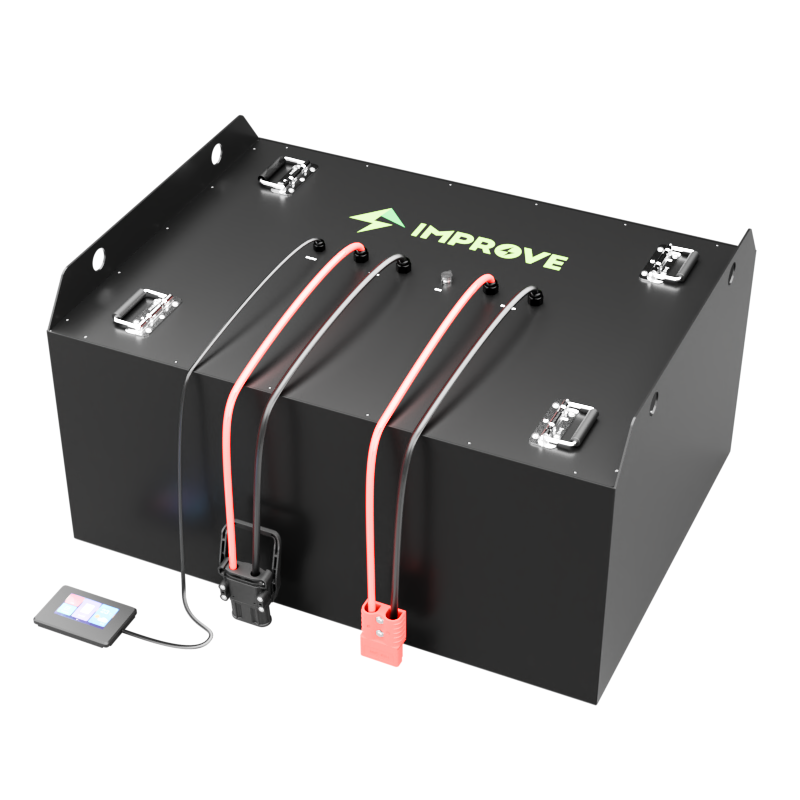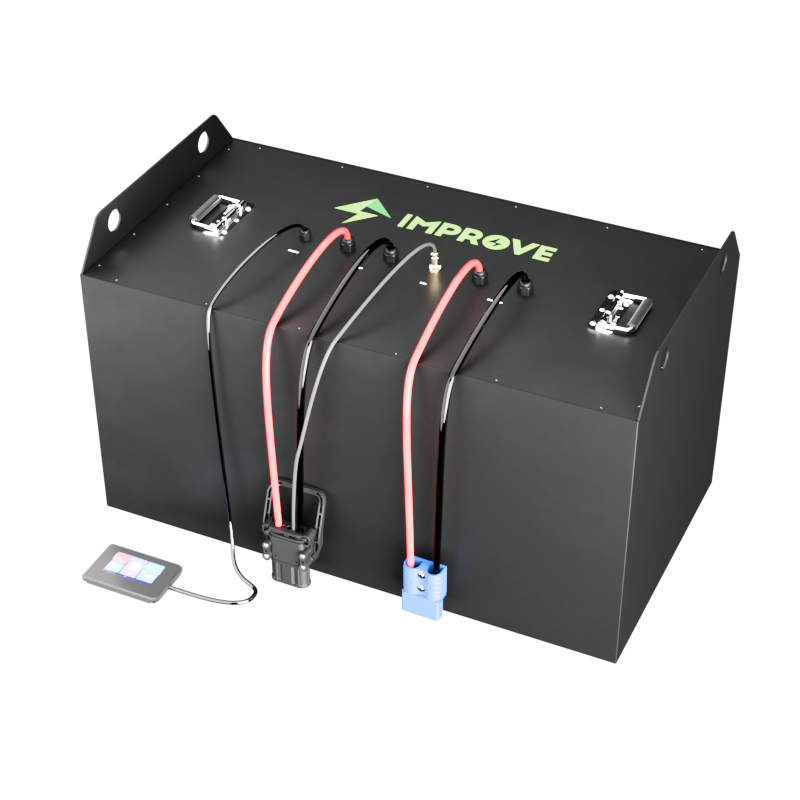Companies around the world are transitioning to alternative energy solutions, such as lithium-ion batteries for forklifts. The advancement of battery technology has allowed for a viable power solution for a forklift using something other than traditional lead-acid batteries. Lead-acid batteries are used in the majority of electric forklifts, and are still a great option for facilities that are not running multiple shifts. They also require a lower initial investment.
Lithium-Ion batteries will cost more than lead-acid batteries; however, many owners and operators agree the advantages gained outweigh the costs. The initial investment of these batteries will offer a higher return on investment when properly managed than a lead-acid battery.
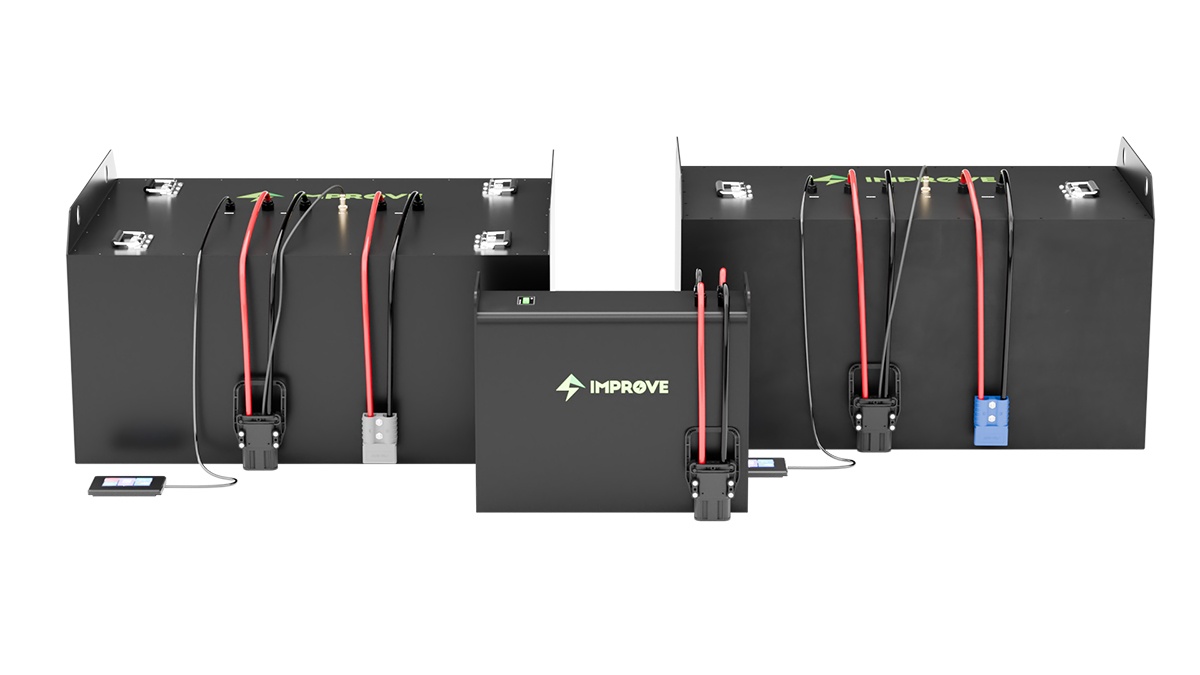
LITHIUM BATTERY ADVANTAGES
Increased Productivity
During a shift lithium lift truck batteries will maintain a higher and consistent voltage. Consistent voltage means you will have a higher-performing forklift during all stages of the day, increasing throughput in your facility. Lithium batteries also require less time to charge, which helps improve productivity and throughput.
Reduced Downtime
A lithium-ion battery can last two to four times longer than a traditional lead-acid battery. With the ability to recharge or opportunity charge a lithium battery, you will eliminate the need to perform battery swaps, reducing downtime.
Nearly Maintenance Free
Lithium forklift batteries use sealed cells that don’t require constant watering, equalizing, or cleaning. These batteries are virtually maintenance-free and will reduce both labor costs and downtime.
Faster Charging
Lithium-ion forklift batteries charge significantly faster and don’t require a cool-down period. A lithium battery can charge in less than an hour, which is eight times faster than a lead-acid battery and doesn’t need to fully charge to resume operations. Operators can charge the battery during their breaks throughout the day.


